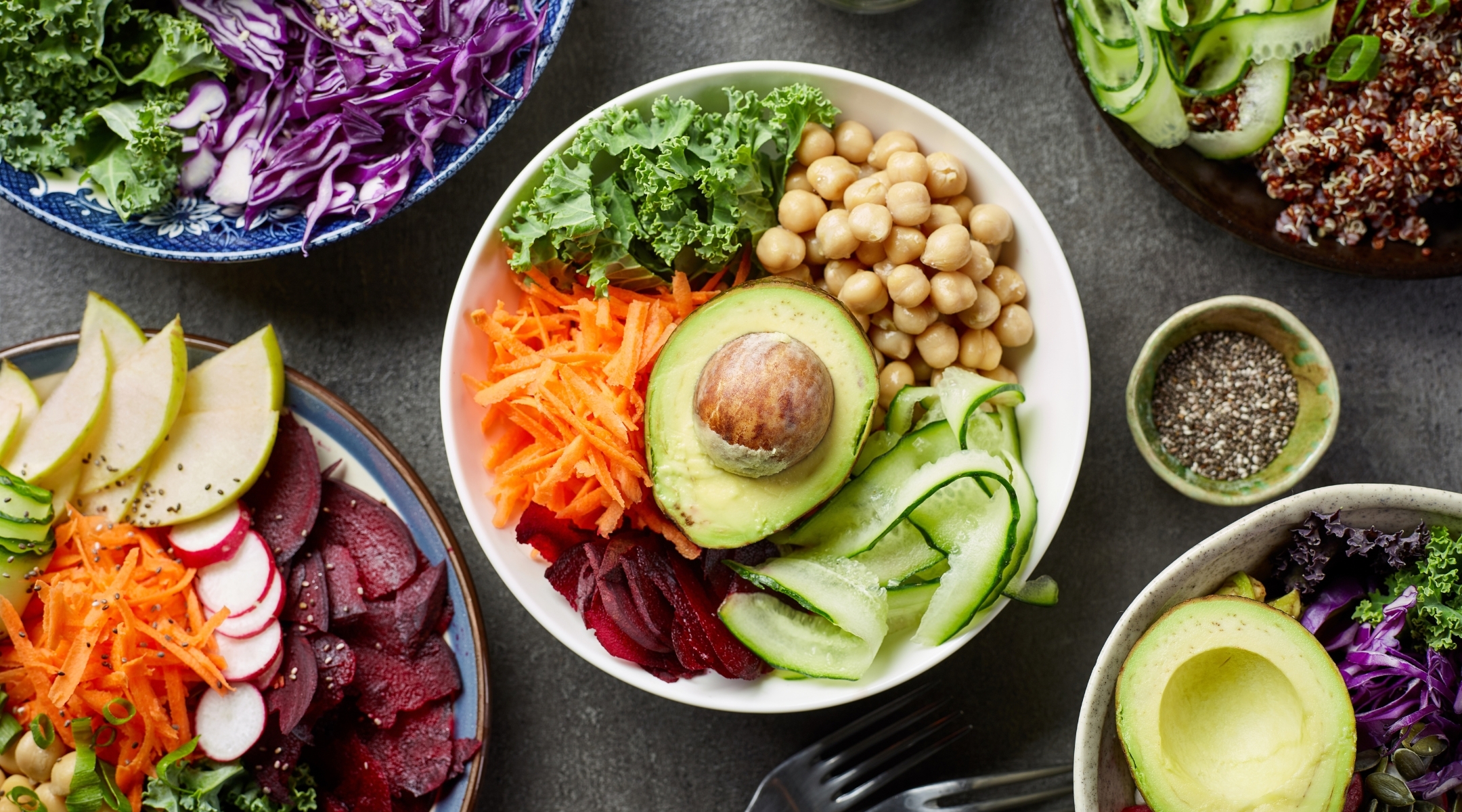Conservative movement OKs vegetarian and vegan restaurants without kosher supervision
The ruling represents a change in how the Conservative movement approaches one of the core elements of traditional Jewish life.

(Getty Images)
(JTA) — For years, a subset of Jews who eat only at kosher-certified restaurants have bent the rules by taking advantage of a growing trend: fully vegan eateries.
Now, a ruling issued by the Conservative movement has given that practice its official imprimatur, declaring that Jews may eat at vegetarian or vegan restaurants that don’t have kosher supervision.
In practice, the ruling’s target audience is small. Most Jews who eat only in certified kosher restaurants are Orthodox and pay little if any attention to Conservative opinions on Jewish law. According to a 2020 survey by the Pew Research Center, 17% of Jews identify as Conservative and only a fraction keep kosher at home. Even fewer adhere to the strict dietary laws when they dine out.
But the ruling does represent a change in how the Conservative movement approaches one of the core elements of traditional Jewish life. It comes as an increasing number of Americans are going meatless and amid a broader reckoning over what counts as kosher, now that products such as Beyond Meat and Impossible Pork, which are plant-based and contain no animal products, are available in grocery stores.
“It has been the case for a number of years already that many people, making a judgment of their own, have begun to eat at vegan restaurants, looking at them and seeing no obvious kashrut problems,” said Rabbi Avram Israel Reisner, the ruling’s lead author.
A study by Dror Fixler, an Israeli religious Zionist rabbi and physicist, also concluded several years ago that Jews may eat in a strictly vegan restaurant, as long as they refrain from consuming vinegar, which could be non-kosher. The ruling also comes after the Conservative movement updated its Passover guide, permitting Jews to purchase certified gluten-free products ahead of the holiday, as long as they were also oat-free.
Previously, the movement deemed that Conservative Jews who keep kosher should eat only at restaurants under kosher supervision. But the 38-page ruling, issued earlier this month, says that without any meat products, many of the concerns surrounding kosher observance are rendered moot. The decision was voted on by 20 of the 25 members of the committee, the vast majority of whom voted in favor.
Without meat, there can be no mixing of meat and milk, the ruling says, and there is also no possibility of eating non-kosher foods such as pork. Even though the vast majority of kosher supervisors say cheese needs certification, the ruling permits eating at vegetarian restaurants on the grounds of a prior Conservative ruling stating that animal rennet is not prohibited.
The ruling is explicit in that it does not apply to restaurants that serve meat or fish but otherwise have vegetarian options, because there is still the risk of cross-contamination of un-kosher foods.
“The requirement to eat only kosher is not one of health or physical purity, but one of Godliness and the observance of mitzvot,” the ruling concludes. “While there are some levels of risk which the halakhah prohibits undertaking, we have argued that eating in an unsupervised vegan or vegetarian restaurant where government oversight exists and restaurants are generally concerned with their reputations does not overstep that boundary.”
The document adds that ancient rabbinic prohibitions on the consumption of bread baked by non-Jews were instituted primarily to prohibit social interactions with non-Jews.
“The prohibitions are social and unrelated to any concern of kashrut,” the decision says of the ancient ban. “We see ourselves and our gentile neighbors as equal members of society and reject social discrimination that holds us separate from those of other religious persuasions.”
The ruling notes that one of the reasons for the intricacy and strictness of certain kosher laws is to prevent intermarriage. Reisner said that the new openness to vegan and vegetarian dining does not signal a loosening of the prohibition on interfaith marriage.
“The Conservative movement has for some time been moving away from edicts to maintain social separation, arguing a more humanist position about the desirability of good relations with all of our compatriots,” Reisner said. “Now, that is not the same as to say that it approves of intermarriage.”
This article originally appeared on JTA.org.






















